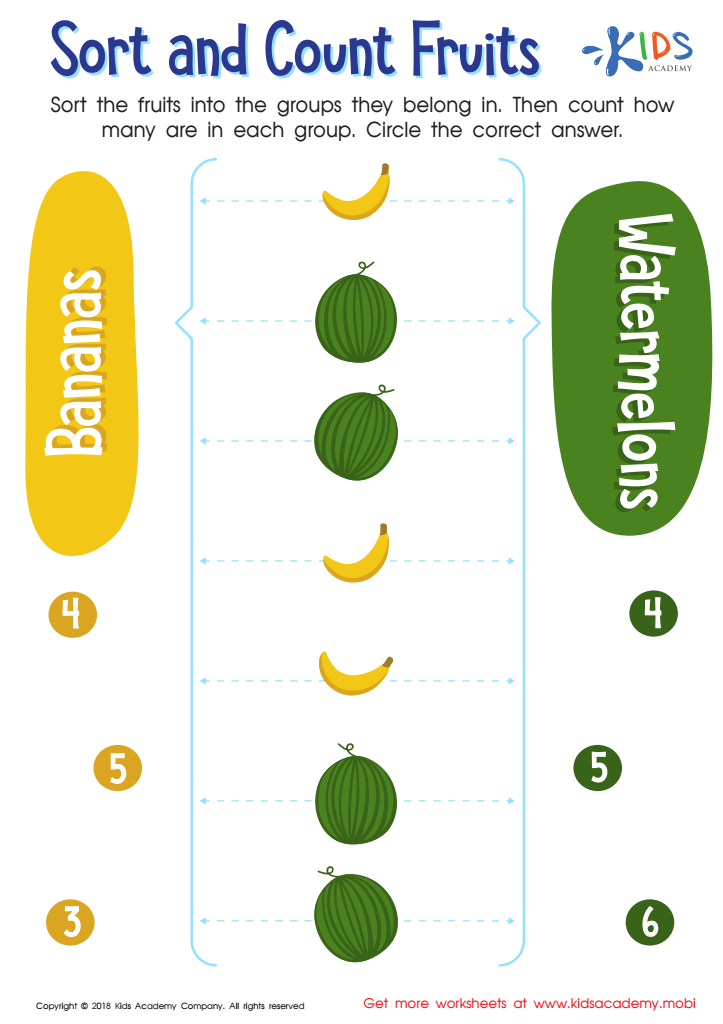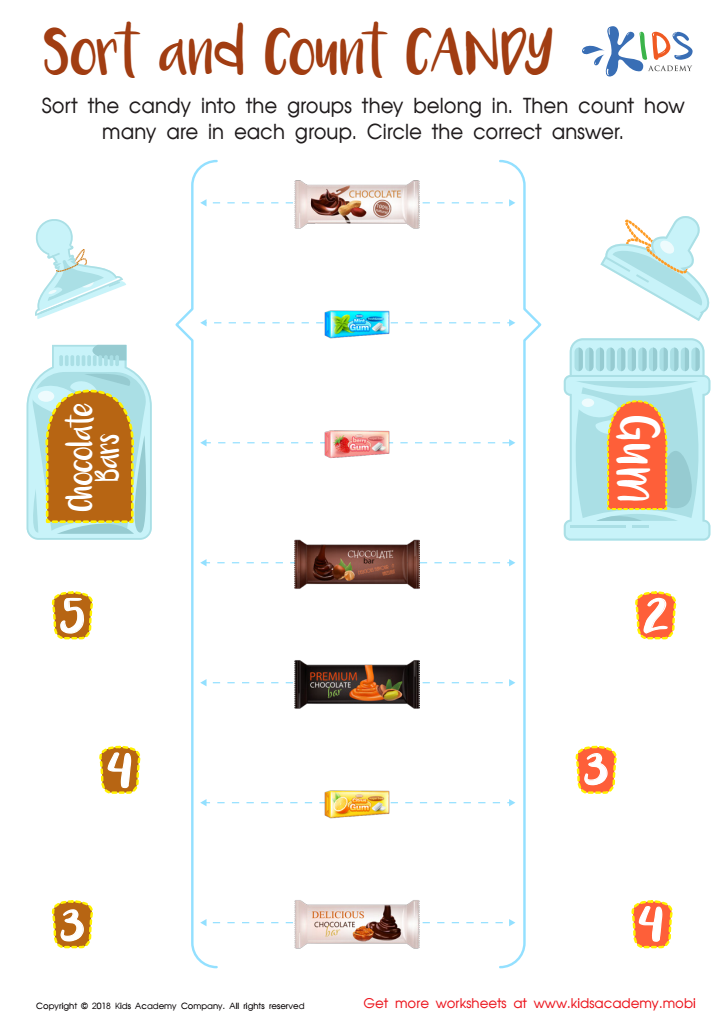Counting skills Sorting Worksheets for Ages 6-7
3 filtered results
-
From - To
Our engaging "Counting Skills Sorting Worksheets for Ages 6-7" are designed to blend fun with foundational math learning. These printable worksheets help children develop essential counting and sorting abilities, supporting early numeracy. Featuring vibrant graphics and interactive exercises, young learners can practice counting objects, recognizing patterns, and categorizing items by size, shape, or color. Ideal for use at home or in the classroom, each activity aims to bolster confidence and competence in math, paving the way for future academic success. Boost your child's counting skills with our expertly designed worksheets and watch their mathematical understanding grow!


Sort and Count Fruits Worksheet


Sort and Count to the Moon Worksheet


Sort and Count Candy Worksheet
Counting and sorting skills are foundational components of early math education, crucial for children aged 6-7. Parents and teachers should prioritize these skills because they lay the groundwork for more advanced mathematical concepts.
Counting helps children understand numbers, their order, and their relationships. When kids count objects, they develop one-to-one correspondence, realizing that each object corresponds to one number. This is essential for grasping addition, subtraction, and other arithmetic operations later on.
Sorting, on the other hand, boosts critical thinking and organizational skills. Through sorting activities, children learn to classify objects based on attributes such as shape, size, color, or type. This encourages logical thinking and pattern recognition, skills that are not only useful in math but also in science and everyday problem-solving.
Moreover, both counting and sorting reinforce attention to detail and the ability to follow multi-step processes, which are vital for academic success across subjects. They also enhance fine motor skills and coordination as children handle different objects during these activities.
Encouraging counting and sorting at this early stage helps build confidence and a positive attitude toward learning. When kids master these basic skills, they’re better prepared for the complexities of the school curriculum. Therefore, fostering these abilities benefits their overall cognitive development, setting the stage for future academic achievement.

 Assign to My Students
Assign to My Students
















